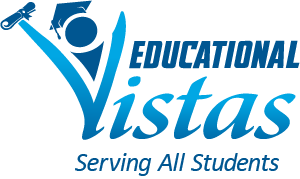The School Principal – Changing Graduation Requirements & Opportunities
To address the graduation needs of all students and allow for multiple pathways to graduation, New York State Blue Ribbon Commission on Graduation Measures presented its recommendations, and among those here are salient considerations:
- Reduce and/or modify diploma assessment requirements to allow more assessment options.
- Create state-developed rubric(s) for any performance-based assessments
- Create more specific, tailored graduation requirements to address the unique circumstances of certain groups of students.
What Students Should Know and Be Able to Do Before They Graduate
- 21st century skills (creativity and innovation, critical thinking and problem-solving, communication, and collaboration)
- Social and emotional skills (including collaboration, communication, and self-management)
- Digital literacy and information processing
- Basic life and career skills
- Authentic learning experiences (connecting classroom learning to the world in which students live)
- Civic education and civic readiness
How Students Should Demonstrate their Achievements in a Way that Accurately Reflects their Skills and Knowledge
- Performance-based assessments
- Experiential and work-based learning opportunities
- Differentiated and growth-based assessments
- Option to choose from several types of assessments (for all students)
- Modifying or dropping Regents Exam requirements
College and Workforce Expectations
The concern for student preparation for college or careers is a key factor of the recommendations. Therefore, real-world expectations are identified in terms of critical behaviors students need to acquire:
- Problem solving
- Independent thinker
- Work on teams
- Skills to research
- Independent living
- Pass the simplest workforce test
- Work on real-world problems
- Comfortable with civics
Stakeholders shared several positive aspects of performance-based assessments, including applying knowledge learned to real-world scenarios and having more equitable assessment opportunities for English language learners and students with disabilities. Participants mentioned that performance-based assessments allow teachers the flexibility to tailor assessments to students’ unique learning styles. Participants acknowledged that performance-based assessments allow students to show what they have learned in a variety of ways. Participants also saw performance-based assessments as opportunities for students to practice skills (such as conducting a research project or giving a presentation) that are needed for career or postsecondary success.
Academic and Workforce Preparation
The committee investigated graduation requirements and options in other states. Of particular importance is the need to make students aware of career and work options and how to prepare for such futures. Massachusetts which has a national reputation for its high performance, provides a My Academic Career and Academic Planning (MyCAP) that is a student-driven, multiyear planning process focused on the academic, career development, and personal/social domains necessary for postsecondary success. In addition, it has established public–private partnerships through the 16 local MassHire Workforce Boards to connect schools and businesses.
Student planning for college and careers should ideally begin in middle school. An early start helps students acquire information regarding necessary preparation for their future. Above all, students would realize that a single option may not be reasonable in a changing world; however, preparation for a particular area makes sense. Whether the State acts on the importance of planning or not, should not inhibit a school district to do it. Models such as MyCap would be helpful.
 Dr. Bruce H. Crowder is a senior researcher for Educational Vistas, Inc. His work is primarily focused on creating pathways for deeper learning for all students through student performance and a dynamic curriculum replete with strategic teaching. Dr. Crowder may be reached at bcrowder@edvistas.com
Dr. Bruce H. Crowder is a senior researcher for Educational Vistas, Inc. His work is primarily focused on creating pathways for deeper learning for all students through student performance and a dynamic curriculum replete with strategic teaching. Dr. Crowder may be reached at bcrowder@edvistas.com


